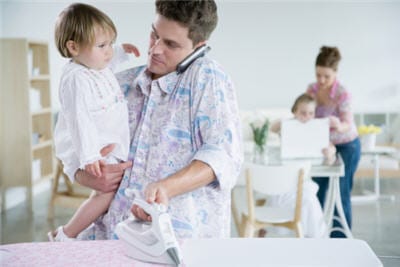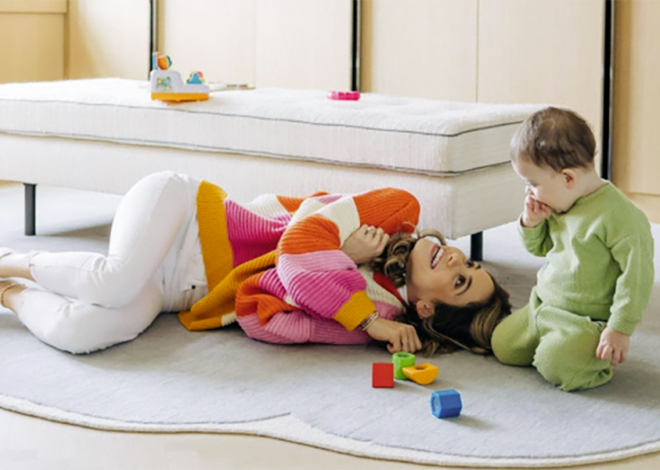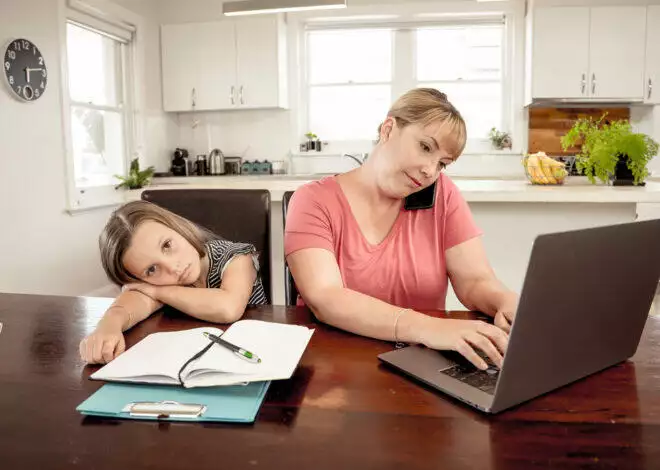Imagine this scene: It’s 7:40 in the morning. You are trying to get everyone out the door on time for school. But one child is purposely moving slowly because her feelings were hurt by her older siblings who laughed at her. Meanwhile, those two siblings are fighting over the toothpaste in the bathroom and still haven’t put their shoes on. Add to that a baby who needs a diaper change and well, you can imagine the frustration! You feel your anxiety mounting but what do you do? We’ve all been faced with these situations and how we handle them may be more important than you think.
There are Options…
You could explode with anger and start yelling. Or, you could take a couple of breaths and ask yourself what would be helpful, and how can I facilitate a quicker exit without having to strain my vocal chords. Some answers lay in what is called “reflective parenting.”
What is Reflective Parenting?
Reflective Parenting is all about our unique human capacity to take another’s feelings, needs, intentions, thoughts and behaviors into consideration before we act and / or respond to our child. It is characteristics like these that can help us to be the best role model as parent that we can be for our children. Like many well intentioned parents, our first choice is to be thoughtful and respectful, especially when under stress. But we’re not always successful, so reflective thinking is an available tool for us to unlock elements of the intimate parent / child relationship in order to understand the subtle and non-verbal cues a child puts out.
Attachment
It is our capacity to think reflectively then, that allows our children to develop this same capacity as they grow into adulthood. Children develop a better sense of how they think and who they are as individuals when they themselves have experienced more thoughtful parenting. The underlying philosophy of reflective parenting began with research on the theory of ‘attachment’; defined simply as a lasting emotional bond between a child and a caregiver. It sets forth a blueprint for all their future intimacy’s and how they subjectively view the world.
Understanding
But can we really understand what is behind our child’s infuriating behaviors? Yes, if we consider in these stressful moments that something deeper may be going on. Perhaps our child’s need for negative attention comes because we are too busy to give them positive attention. Or, perhaps like all of us, they are living in the moment with their siblings yet have no concept of time as adults do. Or, they are simply anxious and stressed themselves and don’t have the capacity to articulate what it is they need in that moment. Often, the simple act of a parent slowing down can bring valuable insight into a harried situation. In reflective parenting terms this is called “holding your child in mind.”
No Knee-Jerk Reactions
If we examine our own behavior when chaos strikes and understand our own knee-jerk reaction patterns, we may be able to have better success in problem solving when we too are feeling stressed. A parent has a choice as to how they react whereas a child may not have the cognition to do the same. So if we can find some time to reflect on our own childhood, and the choices our parents made when they were stressed, chances are we may be repeating the same behavior whether we consciously want to or not. If one’s parents had a difficult time tolerating messy emotional moments with their children, you can assume you may find the same things difficult in dealing with yours when they act out. Changing these kinds of reactive patterns takes time and patience, not only with yourself, but your children as well.
We Need All the Help We Can Get
Parents who use ‘reflective parenting’ more often than not, ensure a strong healthy parent-child relationship so that when you are faced with those kinds of situations; when we feel we may have over done it, we have the chance to repair hurt feelings by calmly discussing what happened and what could have been expressed differently, by both of you. We have an enormous impact on the future mental health of our children, not only in terms of reducing the chance of depression and anxiety related disorders, but also in how we model behaviors, relationships and boundaries. Reflective parenting can be your gateway to engaging on a more thoughtful level especially at 7:40 in the morning when we need all the help we can get.





